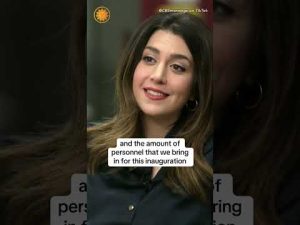In the grand circus of political commentary, the recent kerfuffle surrounding Aurora, Colorado, feels like the main act, complete with a dramatic backdrop and a cast of characters that would make any reality TV show jealous. It all started with the former president giving shout-outs to the “Venezuelan gangs” in a presidential debate. He claimed — with all the flair of a magician revealing his secrets — that these fellows were taking over towns and buildings, hammering in the point that, well, they were here because of policies “that she and Biden led into our country.” Ah, yes, the political blame game—the sport of champions!
Now, we’ve got Mayor Mike Kaufman stepping into the spotlight to clear the air. He’s like the reluctant referee in a boxing match, stepping in and saying, “Hold up! Not so fast!” According to him, the narrative that Aurora is overrun with colorful gang tags and violence is, shall we say, a bit exaggerated. Who knew that a city with such poetic scenery could be the backdrop for a collection of overblown stories? And believe it or not, even Congressman Jason Crow is getting in on the action, linking the sensationalism to an “anti-immigrant agenda.” It’s like watching a comedy duo trying to harmonize but ending in a cacophony; everyone is yelling, “Not my fault!”
But then, of course, there’s the unfortunate sprinkle of truth amidst the chaos, as the police investigate some genuinely horrifying incidents occurring in the very same city. Enter stage left: alleged kidnappers, bound victims, and a storyline that could give a horror movie a run for its money. It sounds like something you’d hear in an over-the-top action flick, but this is real life, where the Aurora police find themselves having to sift through not just the crime, but political rhetoric and media narratives. Who knew that crime could be tangled in politics like a spaghetti dish at a family dinner?
One of the highlights—if one could call it that—is a police chief arguing with a White House representative about how things are supposed to go down once immigrants cross the border. Apparently, it’s a bit like sending a child to the grocery store: you hope they bring back the right things, but there’s always a chance they’ll come back with candy instead of broccoli. The police chief calls out the system in place, suggesting it’s like trying to assemble IKEA furniture without the manual—frustrating and totally unnecessary if someone had just given decent instructions in the first place.
Meanwhile, somewhere in the depths of this political drama, people are grappling with not just the fear of crime and safety in their neighborhoods, but also the larger implications of immigration policies. The conversation continues to shift, sometimes with humor, sometimes with dissatisfaction, and ultimately, it’s a reminder that politics isn’t always a straightforward game. It’s like trying to tell a joke at a funeral—everything is serious, and the punchline is often left hanging in the air as folks shake their heads in disbelief.
So, to summarize, while cities like Aurora navigate these murky waters between safety and sensationalism, everyone seems to have something to say. Whether it’s well-informed, misguided, or just plain ridiculous, one thing is for sure: it makes for some interesting conversations over coffee—or, for some, spirited debates over beer. In the end, it’s a reminder that amidst the chaos, truth always finds a way to wriggle through, whether we like it or not.







